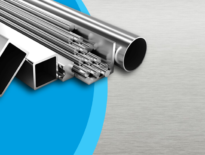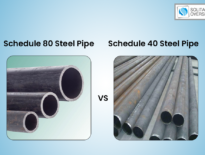Carbon steel density is a crucial factor in many engineering and manufacturing applications. Carbon steel is an alloy containing 0.12% to 2% carbon, offering various types that serve different purposes. It provides significant advantages such as increased strength and hardness, making it highly preferred by manufacturers for its flexibility and quality.
What is the Density of Carbon Steel?
Pure carbon steel typically has a density around 7.8 g/cm³ (0.284 lb/in³), but this can vary depending on the specific composition and any alloying elements present. The density range for carbon steel can vary from approximately 7.75 g/cm³ (0.282 lb/in³) to 8.05 g/cm³ (0.291 lb/in³), reflecting the impact of alloying elements like manganese, nickel, chromium, and others.
Compared to some other metals:
- Stainless Steel: Typically has a density ranging from 7.75 g/cm³ (0.280 lb/in³) to 8.0 g/cm³ (0.289 lb/in³), similar to carbon steel but with higher corrosion resistance.
- Copper Alloys: Have a density ranging from 8.4 g/cm³ (0.303 lb/in³) to 9.0 g/cm³ (0.325 lb/in³), generally denser than carbon steel.
- Aluminum: Has a lower density of about 2.7 g/cm³ (0.098 lb/in³), making it much lighter than both carbon steel and stainless steel.
Understanding the density of materials is crucial for selecting the appropriate material for specific applications, considering factors such as weight, strength, and durability.
Why is carbon steel density essential?
Carbon steel density is vital for various engineering and manufacturing purposes because it impacts the weight of the material, strength-to-weight ratios, and dimensional stability.
Factors affecting carbon steel density:
- The amount of carbon in the steel affects its density.
- The heat treatment process can alter its density by affecting the material’s particles.
- Temperature and pressure conditions can influence the density.
- The grain size in the steel’s microstructure impacts its density.
- Surface treatments on the steel can change its density.
How to measure carbon steel density?
Carbon Steel Round Bar:
- Formula for Density in KG per Meter: Outer Diameter (OD) in MM X Outer Diameter (OD) in MM X 0.00623
- Example: (80MM X 80MM) X 0.00623 = 39.872 Kg per meter.
Carbon Steel Pipe/Tube:
- Formula for Density in KG per Meter: Outer Diameter (OD) in MM – Thickness in MM X Thickness in MM X 0.0248
- Example: (88.9MM – 3.05MM) X 3.05MM X 0.0248 = 6.49 KG per meter.
Carbon Steel Plate/Sheet
To calculate the density of carbon steel plate/sheet per piece, you can use the following formula:
Density=Width in MM×Length in MM×Thickness in MM×0.00000784
Example Calculation:
For a plate with dimensions 6MM (Thickness) x 1250MM (Width) x 2500MM (Length):
6 MM×1250 MM×2500 MM×0.00000784=147 KG per Pc
This formula helps in determining the weight of a carbon steel plate or sheet based on its dimensions, providing a straightforward way to calculate the material requirements for various applications. Understanding the density of carbon steel is crucial for accurate planning and efficient use of resources in engineering and manufacturing projects.
How Does Density Affect Carbon Steel Properties?
Density of carbon steel determines several key properties, including:
- Strength-to-weight ratio: The high density of carbon steel combined with its strength makes it an excellent material with an outstanding strength-to-weight ratio, ideal for applications like aircraft construction.
- Corrosion resistance: While not as corrosion-resistant as stainless steel, carbon steel’s density provides a protective oxide layer that minimizes corrosion from environmental factors.
- Machinability: Carbon steel density influences its machinability. Its relative softness compared to other metals, such as titanium, makes it easier to process and shape.
Conclusion
Understanding the density of carbon steel is essential for anyone working with this material, as it impacts strength, weight, and overall performance. Manufacturers and engineers can make informed decisions about the appropriate product for their applications, ensuring quality and reliability in their final products. Solitaire Overseas holds a comprehensive stock of high-quality Carbon Steel, Alloy Steel, and Stainless Steel products to meet diverse industry needs.
FAQs-
What is the density of carbon steel in kg m3?
The density of carbon steel is approximately 7850 kg/m³. This density can vary slightly depending on the exact composition and grade of the carbon steel.
How dense is carbon steel?
The density of pure carbon steel typically ranges from approximately 7.75 g/cm³ to 8.05 g/cm³ (0.282 lb/in³ to 0.291 lb/in³). This range can vary based on the specific composition and any alloying elements present in the steel.
What is the density of carbon steel in g cc?
The density of carbon and low alloy steels typically ranges from 7.8 g/cc to 7.9 g/cc.


